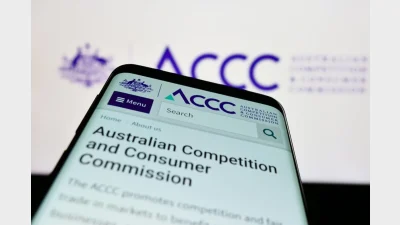ACCC given M&A oversight powers under sweeping reforms



All merger proposals will have to be approved by the consumer watchdog under the sweeping merger reforms announced by the government on Wednesday.
The government will introduce a prohibition on merger transactions proceeding without receiving a determination from the Australian Competition and Consumer Commission (ACCC) first under new rules set to kick in from 1 January 2026.
In a statement published on Wednesday, Treasurer Jim Chalmers said the new merger rules will “boost competition and productivity” in the economy.
“Our new reforms will make our merger approval system faster, stronger, simpler, more targeted and more transparent,” Chalmers said.
The new rules follow a submission by the consumer watchdog calling for a “fit-for-purpose merger regime” after an analysis showed that Australia’s competitiveness has been declining since the 2000s, while market concentration has nearly doubled over that period.
“We will simplify and speed up the process for mergers that are in the national interest and give the regulator stronger powers to identify and scrutinise transactions that pose a risk to competition, consumers and the economy,” the Treasurer said.
Under the new rules, rather than scrutinising deals after they are made public, parties involved in major merger and acquisition proposals will now be required to seek clearance from the ACCC before proceeding, or the deal will be void. As part of this initial process, the prospective purchaser must demonstrate that their deal does not substantially lessen competition before advancing.
Decisions will also be subject to a review by the Competition Tribunal to ensure they’re conducted by legal and economic experts.
According to a report the government published alongside its announcement, the reforms intend to put an end to “serial or creeping acquisition”. They will also prescribe “anti-avoidance” measures to ensure firms don’t attempt to bypass the obligations by dividing or staggering the merger into several transactions.
Moreover, mergers subject to review will be charged cost recovery fees, scaled to reflect the complexity and risk of the merger.
“Consistent with comparable jurisdictions overseas, fees are likely to be in the range of $50,000–100,000. There will be additional fees for Tribunal review. An exemption from fees will be available for small business,” the government’s report read.
Public register to be introduced
Australia remains one of only three OECD countries with a voluntary merger regime.
According to the government, the new system will align with “international best practice”.
ACCC chair Gina Cass-Gottlieb welcomed the government’s announcement on Wednesday, noting that “stronger merger laws are critical to ensure anti-competitive mergers do not proceed”.
“These proposed changes are significant and will reinforce public confidence in Australia’s competition laws,” Cass-Gottlieb said.
The new system is also expected to be both faster and simpler, with a 30 working days turnaround where the regulator decides mergers raise no competition concerns.
“We are reducing these three streams to a single, streamlined path to approval that removes duplication and standardises notification requirements for all mergers,” Chalmers said.
A public register of all mergers and acquisitions will also be created to promote “transparency, accountability and competition”.
The government is said to have engaged in “substantial consultation” with industry before Wednesday’s announcement, alongside consultations with an expert advisory panel made up of David Gonski, Kerry Schott, John Asker, Sharon Henrick, John Fingleton, Danielle Wood, and Rod Sims.
Recommended for you
Dan Farmer, chief investment officer of MLC Asset Management, has detailed how its super fund allocations have evolved and whether the fund will consider investing in bitcoin.
Australia’s superannuation capital has been positioned to play a larger role in south-east Asia’s economic development under a new government-backed deal.
Superannuation funds have become the dominant force behind Australia’s private markets boom, fuelling unprecedented growth and reshaping manager operations.
Reserve Bank governor Michele Bullock has said the central bank sees private demand picking up over the next year, taking over from public demand.









